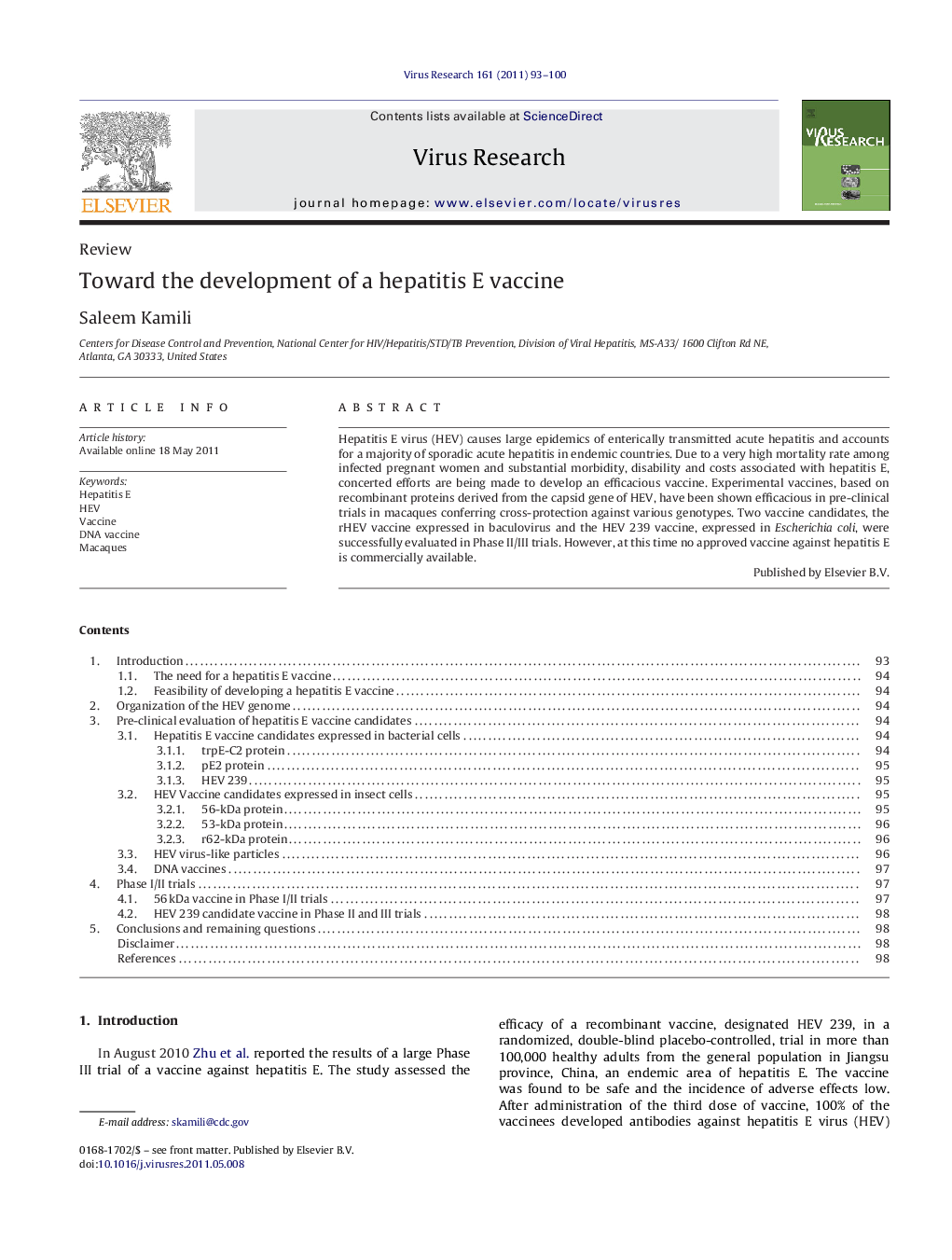| Article ID | Journal | Published Year | Pages | File Type |
|---|---|---|---|---|
| 3428979 | Virus Research | 2011 | 8 Pages |
Hepatitis E virus (HEV) causes large epidemics of enterically transmitted acute hepatitis and accounts for a majority of sporadic acute hepatitis in endemic countries. Due to a very high mortality rate among infected pregnant women and substantial morbidity, disability and costs associated with hepatitis E, concerted efforts are being made to develop an efficacious vaccine. Experimental vaccines, based on recombinant proteins derived from the capsid gene of HEV, have been shown efficacious in pre-clinical trials in macaques conferring cross-protection against various genotypes. Two vaccine candidates, the rHEV vaccine expressed in baculovirus and the HEV 239 vaccine, expressed in Escherichia coli, were successfully evaluated in Phase II/III trials. However, at this time no approved vaccine against hepatitis E is commercially available.
